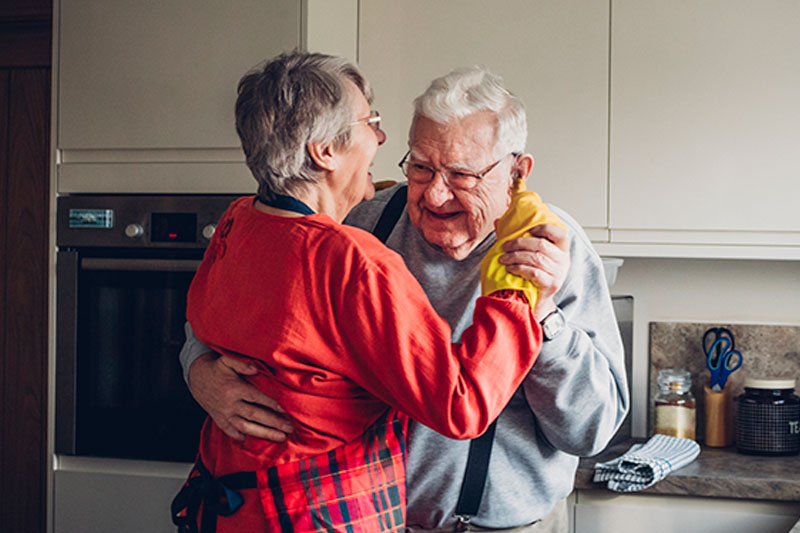
There are numerous benefits of exercise for a loved one with dementia.
When an older adult has dementia or Alzheimer’s and all of the obstacles that these conditions entail, family care providers need a toolbox full of helpful strategies. Of all of the creative approaches caregivers can use to aid in making life as comfortable, safe, and meaningful as possible, there’s one very effective strategy that could be neglected: exercise.
We know that there are physical and mental benefits of exercise for all of us, and that does not change with a dementia diagnosis. Exercising can help:
- Improve sleep
- Strengthen muscles, and increase flexibility, balance, and circulation
- Reduce soreness and pain
- Lower the risk of trips and falls
- Boost mood and attitude
- And much more
On top of that, it is drug-free, so there are no negative effects to be concerned about!
To encourage and motivate a senior with dementia to engage in exercising, plan to work out together. This way it is possible to demonstrate the movements and help the individual when necessary – keeping in mind that performing the exercises independently as much as possible is an excellent way to increase self-esteem and confidence.
Unclear where to begin? Try out these exercises, according to the senior’s ability level.
Activities for Early and Mid-Stage Dementia
These more advanced exercises work very well for a person with lesser cognitive impairment:
- Register (together!) for an exercise class at your local YMCA, gym, or senior center. If the person likes being in the pool or may benefit from a low impact workout, try water aerobics.
- Dance! You can dance together at home, register for a dance class, or bring the senior to social events at your neighborhood senior center that include dancing. Bonus: music is amazingly helpful in rousing memories for seniors with dementia.
- Work side by side in the garden – pulling weeds, raking, digging, planting, picking vegetables and flowers. Getting outside in the fresh air is a good mood booster as well, and the work yields a satisfying sense of purpose.
- Get cleaning! Chores around the house like sweeping, dusting, vacuuming, and even folding laundry are excellent ways to exercise, and doing these tasks together allows for conversations, reminiscing, and a feeling of accomplishment when the tasks are done.
- Take a walk together – at the park, in a shopping mall, or just around the block. Stick to the same route if the senior prefers, or change it up from day to day if more variety is appreciated.
Workouts for Late-Stage Dementia
Alterations will need to be made as the disease progresses, but there are plenty of opportunities to incorporate physical exercise into the senior’s day, including:
- Sit to stand: From a seated position, with as much help as needed, the older adult will rise up to a standing position, pause for a couple of seconds, and go back to a seated position. Repeat several times.
- Chair stretches: This video offers several different stretches that can help strengthen and build muscles throughout the body.
- Bed stretches: For a senior who is bed-bound, moving and bending the legs and arms, whether independently or with assistance, will help relieve stiff muscles.
Get in touch with Abby Senior Care‘s compassionate in-home caregivers in Denver, CO or the surrounding communities, for help with implementing an ideal (doctor-approved) exercise regimen for a loved one with dementia, along with the compassionate companionship that makes exercise more pleasurable! Reach us today at 303-699-8840.
